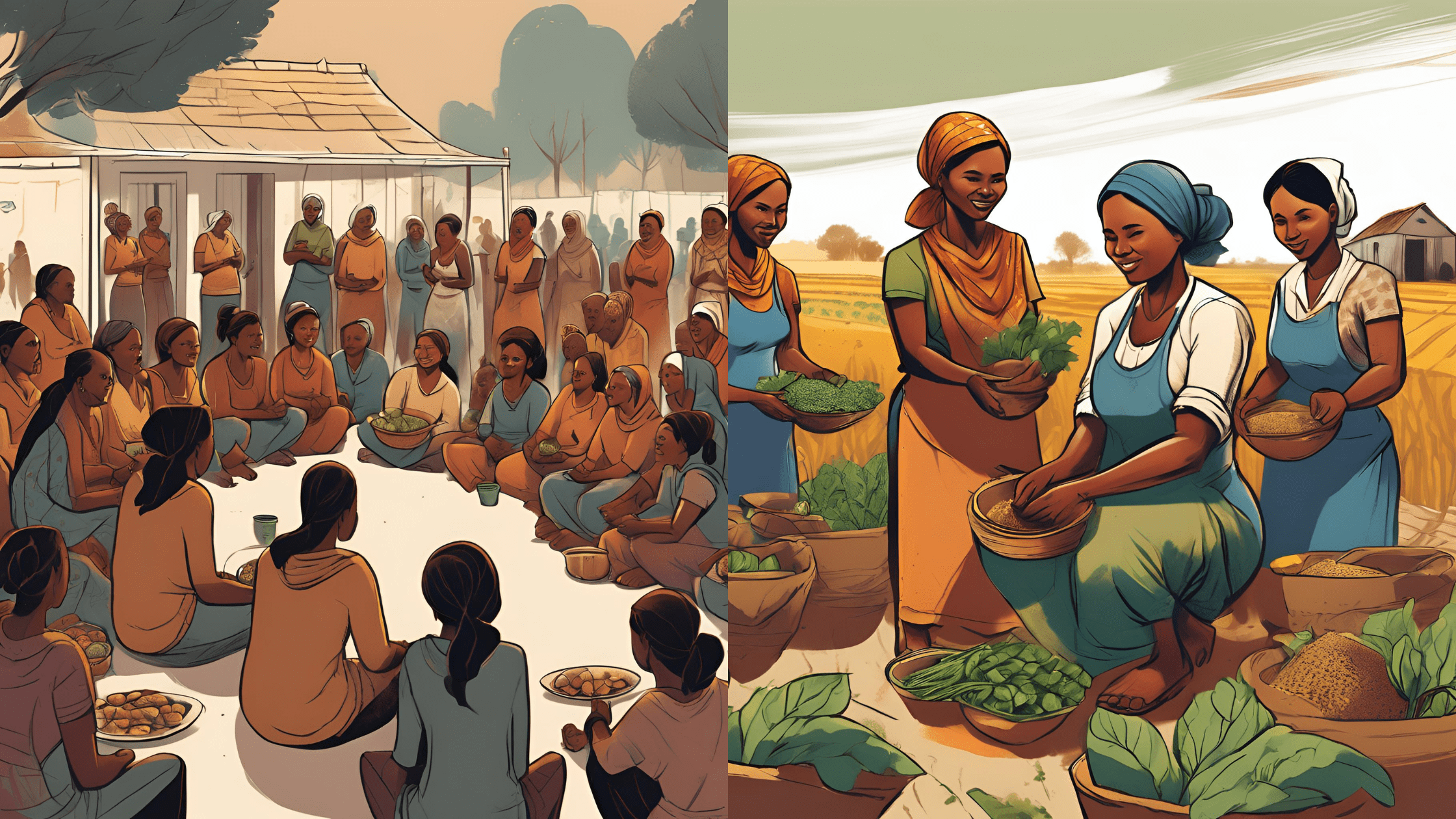Secure livelihoods are an important element in preventing conflict and building peace. Climate change is contributing to worsening livelihood conditions in vulnerable regions. With that comes an increasing likelihood of violent conflict and insecurity.
Despite the increasing evidence of this relationship, livelihood diversification interventions are not prominent as a peacebuilding tool. Where they have been implemented, they have often overlooked supporting women’s livelihoods. This is concerning because paying attention to women’s livelihoods and acknowledging their contribution to peacebuilding increases the effectiveness of livelihood interventions in building peace.
In contexts affected by climate change and conflict, policymakers and practitioners need to more explicitly support women’s livelihoods as an entry point for peacebuilding.
Women’s economic empowerment and peacebuilding
Changes in temperature and precipitation patterns negatively affect household income sources and food supply, particularly those of households dependent on subsistence agriculture. The lack of alternative livelihood options, coupled with political, social and economic strife, may lead people to resort to violence to safeguard their means of survival.
Women’s livelihoods are particularly affected by climate change and conflict. During conflict, women may become the primary breadwinners for their households due to losing male household members to the conflict. They may also have to take on that responsibility if male family members migrate in search of employment due to changing climatic conditions. Women’s ability to provide, however, is hampered by issues such as gender-based constraints on access to financial resources that would help them support their households.
Women’s participation in economic reconstruction through livelihood activities has peacebuilding potential. For example, pastoralist women in northern Kenya—a context affected by drought, environmental degradation and conflict—created community groups to manage the negative livelihood effects that they were experiencing. These women-only groups started microenterprises like butcheries and bakeries and supported growing crops for market. Part of their income and membership fees were invested in community water and sanitation facilities and other initiatives. The groups also engaged in peace meetings and political advocacy to address conflict.
Women’s economic empowerment, however, has not been used to its full potential as a peacebuilding tool. UN Security Council Resolution 1325 acknowledges women’s pivotal role in conflict prevention and resolution, peacebuilding and post-conflict reconstruction, stressing that their equal participation in peace and security efforts can enhance the success of peace agreements. The Resolution also notes that economic reconstruction is essential to peacebuilding.
However, rather than focusing on women’s role in economic reconstruction and its potential contribution to peacebilding, addressing physical violence against women has been the focus during peacebuilding. Inequitable access to economic resources and women’s lack of economic opportunities—which are central to vulnerability, grievances, and the likelihood of conflict—have therefore been neglected.
A second limitation is that when livelihoods programming is conducted in conflict-affected settings, it often does not address the needs of women. In Côte d’Ivoire for example, despite women accounting for 60-80 percent of food production, post-conflict reconstruction neglected their agricultural roles, prioritizing cash crops such as cacao and coffee—mostly grown by men—over food crops, generally grown by women. This approach limited women from developing their own agriculture-based livelihoods, which had knock-on effects for food security.
Strengthening support for women’s livelihoods
Economic recovery during and after conflict is a concern for many women. Livelihood projects should therefore be explicitly designed to support women’s needs and to leverage their economic empowerment as a tool for peacebuilding.
An example of how this can be done successfully is in the Democratic Republic of the Congo (DRC), where the Food and Agriculture Organization of the United Nations supported the voluntary formation of community groups for discussing improvement of livelihoods and food security and sharing views on associated challenges. In the northeastern DRC, fishing is a traditionally male-dominated activity and social norms prohibited women from fishing. Through discussion in the community groups and awareness-raising efforts, social norms shifted, allowing women to fish, thereby increasing their income and improving their food security. The community groups also empowered women and improved their status as they participated or took leadership roles in resolving tensions within the community, thus also contributing to peacebuilding.
Women’s economic empowerment in conflict-affected contexts can improve their economic outlook as well as change social norms and enhance gender relations within communities. All these factors are important for peacebuilding. Purposefully supporting sustainable and viable alternatives that account for the needs of women can provide an additional avenue for peacebuilding.
To learn more about how livelihoods programming can contribute to peacebuilding, refer to “Leveraging Livelihood Diversification for Peacebuilding in Climate- and Conflict-Affected Contexts.”

You must be logged in in order to leave a comment